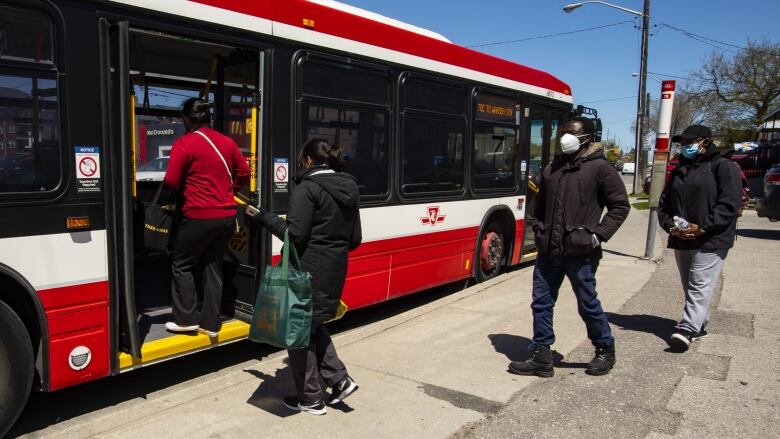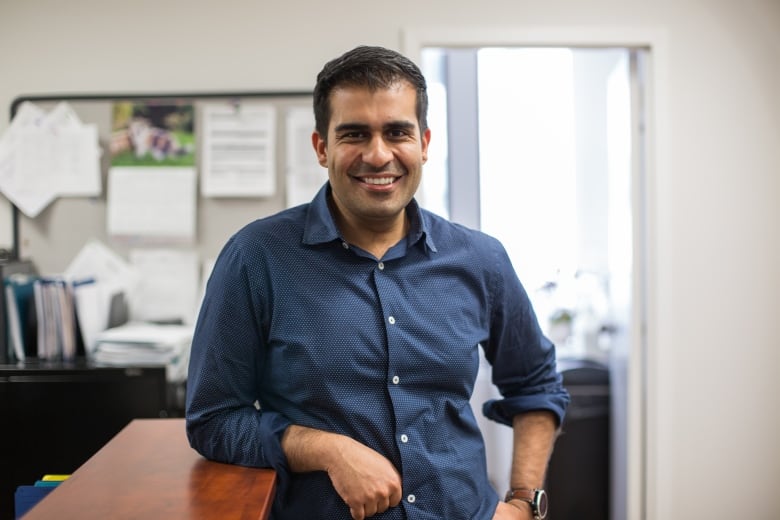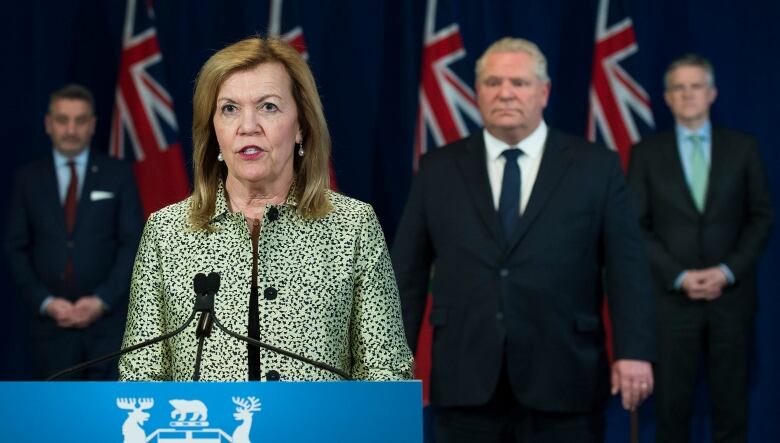What's next for COVID-19 testing in Ontario
Doug Ford promises to 'ramp up testing like this province has never seen,' but offers no details

As Ontario begins loosening its COVID-19 lockdown measures, the calls grow for an urgent expansion of its testing for the novel coronavirus.
The province has persistently struggled to hit its testing targets in the two months since COVID-19 was declared a pandemic. For four days running, Ontario's number of completed tests hasfallen woefully short of its own benchmark of 16,000 per day,averaging about half that number since Monday.
Premier Doug Ford is brushingaside the low testing numbers as a long-weekend phenomenon, and promiseschange.
"We're going to ramp up this testing like this province has never seen. Another three, four weeks, we're going to do a lot of testing," Ford said Wednesday during his daily news briefing.
"I'm going to be all over this testing."
Neither Ford nor officials in the premier's office provided any specific numbers to clarify what "a lot of testing" means.
"We do have the capacity to enhance it considerably," said Dr. David Williams, Ontario's chief medical officer of health, when asked for details of the testing ramp-up floated by Ford.
While experts in the field say widespread testing is essential to monitor the spread of COVID-19 as Ontario eases its emergency restrictions, they also agree it won't just happen because the premier demands it.
Doubling or tripling testing and lab processing "isn't as simple as it sounds," said Dr. Zain Chagla, infectious disease specialist at St. Joseph's Healthcare in Hamilton and an associate professor at McMaster University.
For Ontario to be on par with global leader South Korea, said Chagla,"We're talking in the orders of tens of millions of dollars to get that testing capacity up and running."
Ontario's overallstrategy for COVID-19 testing is currently in transition.
Public health units have essentially completed their mission to testeveryone including residents and staff in the province's hard-hit long-term care homes, where more than 1,400 people have died.
Long-running restrictions on who is automatically eligible for testing have been lifted. Until last week, testing was focused on priority groups. Now, anyone with symptoms can get tested.

That should be the focus for the next two weeks, said Chagla, but he believes the testing criteriamust quickly be broadened further.
"The next step is then moving out into asymptomatic screening and really getting a sense of the prevalence within our communities," he said in an interview Wednesday.
Testing people who don't have symptoms but who may have been exposed to the virus will provide the government with better information to help guide its decisions on further loosening pandemic restrictions or reimposing them, he said.
"There are huge gaps in our knowledge that only testing can fill, and without those knowledge gaps being filled you're not making proper decisions," said RaywatDeonandan, an epidemiologist at the University of Ottawa.
Deonandan is among the public health and infectious disease experts urging Ontario to testmore than just people with symptoms.
"Loosen that even further, to the point where we're testing anyone with a suspicion of being infected, and beyond that, testing people randomly," he saidWednesday in an interview.
Deonandan advocates what he calls "hunting the disease" as the pandemic unfolds.
"That means not testing just the symptomatic and the people we know are likely infected, but going after the cases ... even in places where we do not think they exist," he said.
"A fairly large proportion [of those infected with COVID-19] do not have symptoms and are likely transmitting it unknowingly," said Deonandan. "If we're only testing people with symptoms, we're missing that large proportion."
"Because our testing strategy in Ontario is so very limited, we know we're only seeing the tip of what could be a very big iceberg," said University of Toronto epidemiologist Colin Furness.
"We've brought a knife to a gunfight," said Furness in an interview. "We really have brought the wrong testing strategy, and we need to change it. We need to do that urgently."
He urges testing of "grocery store workers and transit operators and cab drivers, and all people who have occupational risk because they have exposure to a lot of people."

If classes resume in September, Furness says Ontario will needfrequent testing of teachers and students in every school.
"We have to do that, or we're going to have the very predictable trajectory where we open schools and then very quickly have to close them again," he said. "That is going to be very tragic because it will be avoidable."
In the immediate future, Ontario'stargeted testing strategy will focus onretirement homes, group homes, shelters and other congregate living settings, said Health Minister Christine Elliott on Wednesday.
"As we're opening up the economy ... if you have symptoms of COVID-19, please go to an assessment centre and be tested," Elliott said in question period. She called this "vitally important" for monitoring whether the reopening is having an impact on spread of the infection.
Elliott defended Ontario's testing as a success. "Do we hit the targets every single day? No. There is an ebb and flow to this, but we are increasing our capacity on a daily basis," she said.
She called the past few days testing numbers "slower than usual" and attributed them to fewer people showing up at assessment centres over the long weekend.
However, the government's own documentsdescribing its testing strategy suggest the assessment centres account for no more than one-third of all tests.












_(720p).jpg)


 OFFICIAL HD MUSIC VIDEO.jpg)
.jpg)



























































































